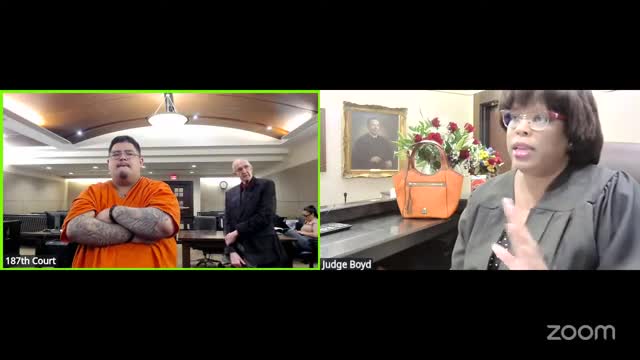Court Procedures Unpacked for Drug Case Defense Strategies
May 16, 2025 | Judge Stephanie Boyd 187th District, District Court Judges, Judicial, Texas
This article was created by AI summarizing key points discussed. AI makes mistakes, so for full details and context, please refer to the video of the full meeting. Please report any errors so we can fix them. Report an error »

The 187th District Court convened on May 15, 2025, under Judge Stephanie Boyd, to address a series of drug-related cases. The discussions primarily focused on the legal processes involved in drug charges, particularly the steps taken by defense attorneys when representing clients accused of drug offenses.
During the meeting, it was explained that defendants typically find themselves in a court randomly assigned, unless specific circumstances apply, such as co-defendants. Once in court, defendants are appointed an attorney who reviews the evidence presented by the state, including police reports and any relevant search or arrest warrants. The attorney assesses whether the police stop was justified and if the search warrant had probable cause.
In drug cases, the attorney examines the type of drug involved—whether it is methamphetamine, cocaine, heroin, or another illegal substance—and verifies the weight of the drugs as reported by a chemist. The chemist's testimony is crucial, as they confirm the identity and weight of the substances involved in the case.
The court also discussed the options available to defendants, including accepting a plea deal or opting for a bench or jury trial. If a plea is not accepted, the case proceeds to trial, where witnesses, including police officers and chemists, are called to testify. The judge emphasized the importance of understanding the plea deadline and the implications of accepting or rejecting the state's offer.
Overall, the meeting highlighted the structured approach to handling drug cases in the Texas judicial system, underscoring the critical role of legal representation and the evidentiary process in determining the outcomes of such cases. The court's next steps will involve ensuring defendants are aware of their options and deadlines as they navigate the legal proceedings.
During the meeting, it was explained that defendants typically find themselves in a court randomly assigned, unless specific circumstances apply, such as co-defendants. Once in court, defendants are appointed an attorney who reviews the evidence presented by the state, including police reports and any relevant search or arrest warrants. The attorney assesses whether the police stop was justified and if the search warrant had probable cause.
In drug cases, the attorney examines the type of drug involved—whether it is methamphetamine, cocaine, heroin, or another illegal substance—and verifies the weight of the drugs as reported by a chemist. The chemist's testimony is crucial, as they confirm the identity and weight of the substances involved in the case.
The court also discussed the options available to defendants, including accepting a plea deal or opting for a bench or jury trial. If a plea is not accepted, the case proceeds to trial, where witnesses, including police officers and chemists, are called to testify. The judge emphasized the importance of understanding the plea deadline and the implications of accepting or rejecting the state's offer.
Overall, the meeting highlighted the structured approach to handling drug cases in the Texas judicial system, underscoring the critical role of legal representation and the evidentiary process in determining the outcomes of such cases. The court's next steps will involve ensuring defendants are aware of their options and deadlines as they navigate the legal proceedings.
View full meeting
This article is based on a recent meeting—watch the full video and explore the complete transcript for deeper insights into the discussion.
View full meeting
